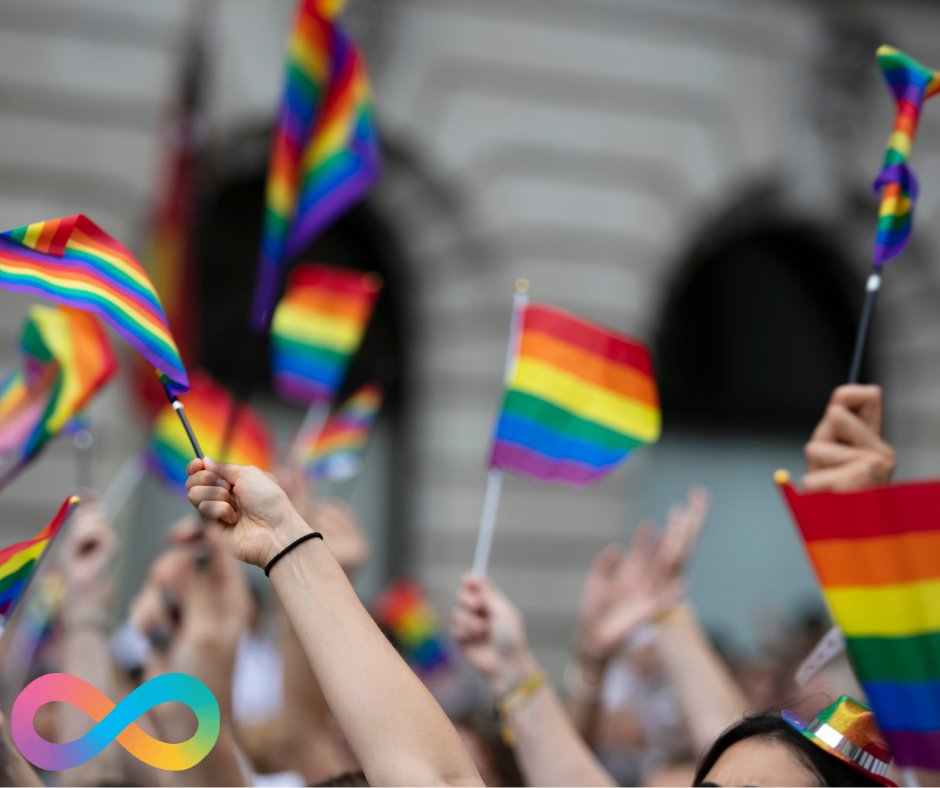Why is the LGBTQIA+ community disproportionally affected by mental health issues? It’s long been known that people from marginalised groups face greater mental health risks, and new research continues to confirm this trend. Indeed, some statistics on the topic are strikingly consistent.
According to a 2022 YouGov report, 51% of LGBTQIA+ people say they experienced or were diagnosed with a mental health condition, compared to 32% of the general population. In 2018, Stonewall reported that 52% of LGBTQIA+ people had suffered from depression within that year. In addition, a study by Youth Chances found that 52% of young LGBTQIA+ people reported self-harming, compared to 35% of heterosexual non-trans young people.
Of course, being LGBTQIA+ doesn’t necessarily lead to mental health problems, so what’s behind these stark statistics? Discrimination and stigma are likely causes, yet both terms can oversimplify the interplay between social pressures and personal conflicts.
“I’d say fear is the number one issue,” says Stevie, a gay woman from Sussex who grew up in a culture of discrimination and secrecy in South London. “I think it's fear of being ostracised, by neighbours, friends or family. You're masking all the time, you know? It's that terrible fear of being found out, and the fear of hearing people’s true sentiments when they think you're straight. And that builds up and up and up and up.”
“The thing is, when you're continuously masking you, you will break at some point. You're just not being authentic. My mental health suffered from internalised homophobia, that terrible hatred of oneself. I knew I was queer right from the get-go – there wasn't any doubt about it. But I tried to deny it. I did, I tried. I tried to be straight. I really did. So that caused mental health issues for me, going against the grain of who I was. It was depression, it was just terrible, you know, suicidal. This sense of what am I going to do?”
Despite a recent shift in attitudes towards greater acceptance of homosexuality, for people like Stevie the trauma of the past lives on. Even if homophobia is declining in some parts of the UK, there are still generations of gay and queer people whose mental health has been scarred by years of discrimination.
“Depression lasts a long time,” Stevie explains. “It's a lifetime of suffering and your body still remembers those things. Your body still pulls towards those things. I suppose it could be like PTSD, really. I'm older and wiser now so I don't generally feel like that anymore, but it was something that I've had to really work on.”

While gay people may have an easier time coming out in the current climate, that is rarely true for trans or non-binary people. The fear and self-hatred Stevie felt in the 80s and 90s also affects many people experiencing dysmorphia today. For TJ, a trans man from Worthing, the process of accessing mental health support was itself a traumatic experience.
“My parents were very quick to get me into private healthcare for the wrong reasons. They wanted to fix something, rather than help me become who I am. I was very fortunate to try different therapies, but at that time – we're talking about 10 years ago – even private healthcare professionals didn’t get it. I told them that my chest wasn't mine, that I didn't feel like I'm meant to be a girl, and the psychiatrist said, ‘oh, that's very normal’, and so I just shut it away because I didn't want to explore it.”
“It's definitely changed now, but the worst time was when I saw a mental health worker through the NHS. Before she even knew anything about my life, she wanted to put me on pills… I just left. I was in a very manic stage. I'd say I was a safety concern when I left that office. But I just had to leave. I just wanted someone to listen, and they didn't.”
TJ eventually met people online who would listen, and later found support within Brighton’s queer community.
“Social media honestly saved my life,” says TJ. “It made the thoughts in my head real and the feelings I felt okay. But honestly, it was the community itself. When the world is against us, we have each other’s shoulders to lean on. We're very gentle. We're very good with one another. Within the community, between each other, there’s no stigma around mental health. It's more expected, which is very sad to be honest. I don't think there will ever be an LGBT person who hasn't had a blip with mental health.”
TJ is now hoping to volunteer at a LGBTQIA+ peer support group based in Southwick. Alyson Owens, who runs the group for West Sussex Mind, says this sense of community can help people address internalised stigma.
“We work on challenging self-critical thinking,” says Alyson. “And we look at the idea of chosen families: if you've been rejected by your immediate family, then it can really help to find other communities to support you. We do that through discussion and sharing experiences.”
“A couple of the younger members of the group are questioning their gender and there are people with different types of religious upbringing. There are people who grew up in Northern Ireland in quite a repressive situation, while other people experienced the AIDS crisis. There's definitely a mix of different ages, but they might have similar experiences of homophobia and stigmatising. The cross-generational sharing is a really nice element of the group.”
As Stevie says, “we still have a way to go and we always will”, but could it be that what works in a support group might also work to change minds in society at large?
“It’s important share the stories of people who survived,” says TJ. “Because stories connect. I think it's about having a welcoming and approachable conversation rather than creating an environment of fear. It's about creating that positive environment for progression.”